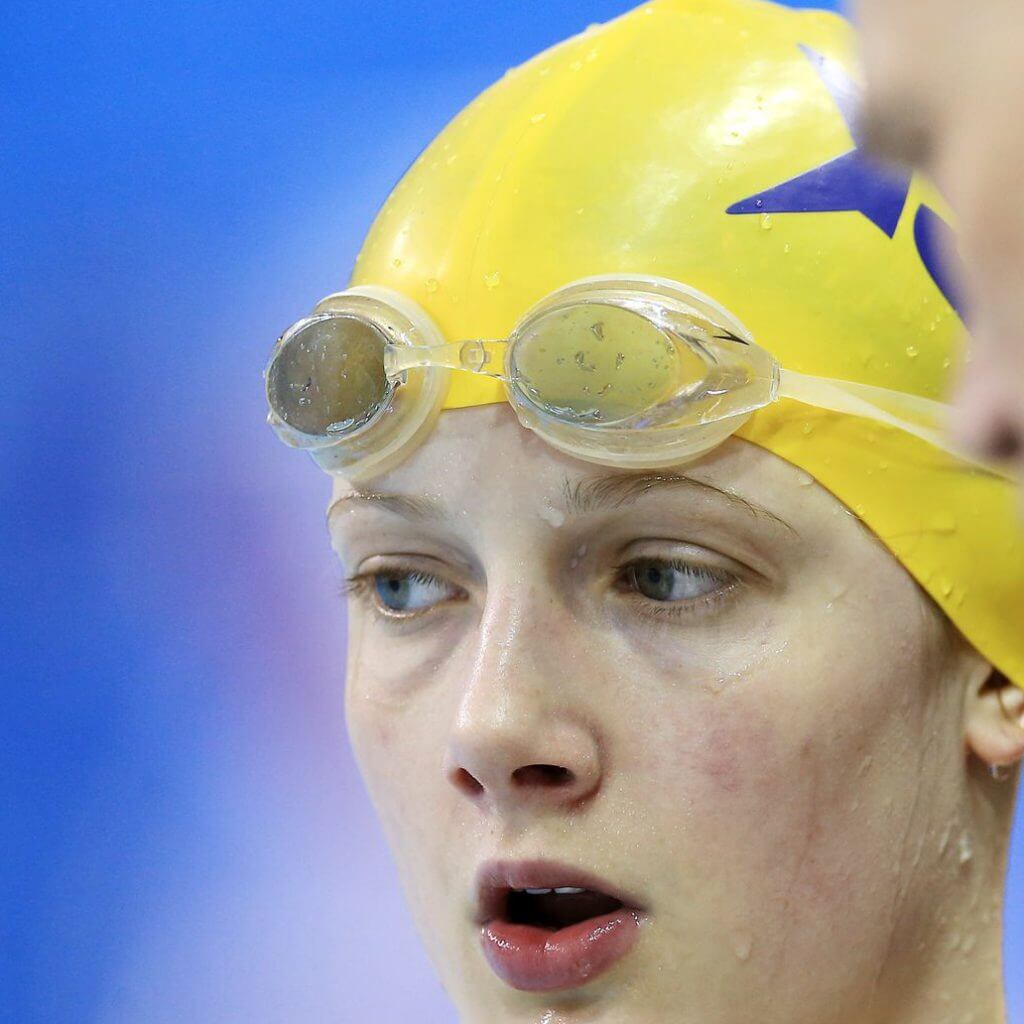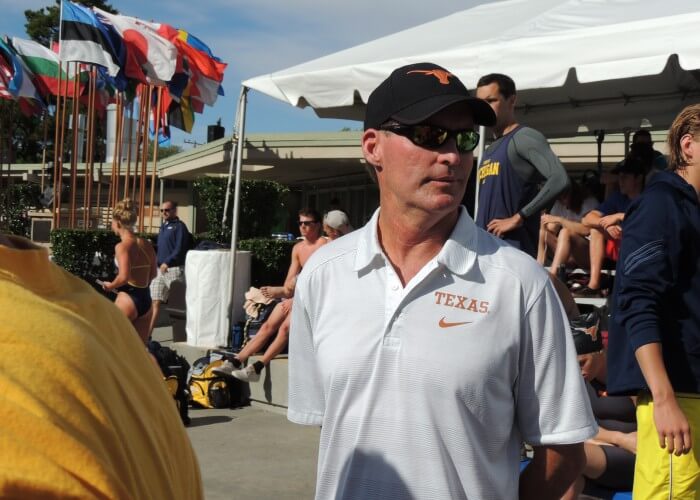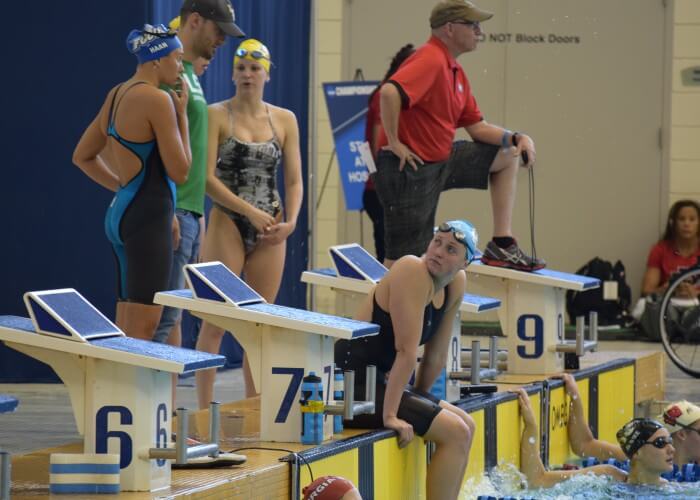4 Ways to Handle A Critical Coach

By Cody Evans, Swimming World College Intern
Although swimming is technically an individual sport, we do rely on some key aspects in order to succeed. Most importantly, swimmers rely on their teammates and coaches. Without the support and encouragement given by these individual, an athlete would have a hard time performing to the best of their ability.
So what makes a swimmer swim fast? A positive swimming environment.
When we look at team dynamics, that dynamic is influenced by the attitude of the coach. Attitude can be projected onto others. If the coach is positive and excited every time they walk onto the pool deck, then the team will likely feel the same way and that positive and excited attitude will be reflected in the way they train and perform.
If the coach is negative and takes a swimmer’s performance personally, that mood/attitude can in turn affect a swimmer’s desire and overall performance level. Most of the time, coaches don’t notice that this is how their attitude is affecting their team. They are just so invested in their swimmers’ performing at their best that they aren’t noticing the impact that their mood is having. Having a coach that is invested in helping you meet your goals as a swimmer is what you want, but not at the expense of your emotional well-being.
As a swimmer I always wondered why some coaches could get so upset with their athletes. It wasn’t until a few years ago that I realized the reason for their concern. Coaches react so strongly when their swimmers are not swimming well is because they are so invested. Not just in the sport itself, but in their athletes and team as a whole. They’re not just doing this job for their own personal success or gain, they are in it for their swimmers and to see them succeed. So when a coach doesn’t see their swimmer doing as well as they feel they should, then they take it personally. In some cases, they take their athletes disappointing performance personally and blame it on themselves. This could be one main reason for their critical reaction after a swimmer’s race.
So what do you do and what do you not do when dealing with a coach that does not have the encouraging attitude you may need to swim fast?
1. Communicate
As in most situations, communication is key. Knowing when to engage with your coach and when it is appropriate to walk away is very important. Sometimes, even if you do not agree, your coach may know what is best for you since he/she is the professional. Some things not to do are: overreact or act in a rash manner.
Some things I have learned while dealing with different coaching styles include: the need to maintain mutually respectful communication, knowing how to keep your emotions in check, and the importance of timing. Knowing how to communicate with your coach could potentially solve all of your problems. But every coach is different, so one style could work well for some coaches but not for others.
2. Take A Step Back

Photo Courtesy: Catherine Ladd
If it seems that your coach needs space, then give them that space and they may come back more approachable and ready to coach you again. Giving them space is a form of respectful communication. This respectful communication also helps you since it gives you the ability to not get dragged into your coaches negative mood, which could affect your swimming.
3. Emotional Control
When dealing with a difficult coach you need to keep your emotions in check. Being too emotional in the situation can hurt the communication you are trying to form. You can do this by staying focused on your goal for this meet/this practice and know what part your coach will play in helping you reach that goal. Keep a central focus on what you need to do to succeed, rather than the role your coach performs.
4. Listen

Photo Courtesy: Annie Grevers
And finally, be a good listener. Perspective is everything. If you are listening from a defensive position then you will never be open to what your coach has to say. Believe it or not, they do know what they’re talking about, they just may not articulate their points in the most effective way possible.
So next time you see your coach overreact, act immaturely, give unnecessary “constructive” criticism or grow mean, think about the tips you have just read and the most effective way to approach the situation.




good!!
Oh! Andréa Isabelle-Roy? Hihi
Flavie Merkly